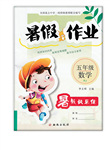题目内容
I regret _____ more time with my grandma before she passed away.
|
A.not spending |
B.not to spend |
C.not spend |
D.not have spent |
A
【解析】略

 暑假作业暑假快乐练西安出版社系列答案
暑假作业暑假快乐练西安出版社系列答案
| |||||||||||||||||||||||||||||||||||||||||||||||||||||||||||||||||||||||||
Has Tiger Mom gone soft? One year after the release of her book, Battle Hymn of the Tiger Mother, Amy Chua is back in the spotlight, reflecting on how overnight infamy (恶名) affected her life, her family and her parenting.
“I have changed a lot,” she told the Huffington Post. “In October, we had 30 kids at our house! We have hosted parties with lots of food and music.”
Last January, the Wall Street Journal published an excerpt (节选) from Chua’s book with the headline “Why Chinese Mothers Are Superior”. In the excerpt, Chua described how her daughters were never allowed to have sleepovers (在外过夜的儿童聚会), appear in school plays, or earn any grade lower than an A. Chua, an author and professor at Yale Law School, spent much of 2011 on the defensive. In fact, many of her interviews seemed to lend fuel to her critics’ fire.
Now, with the book out in paperback, she said, “I put passages in the book and used very harsh words that I regret. Everybody has those moments you wish you could take back.”
For those who still read Battle Hymn as an advice guide, Chua argues that so-called tiger parenting should be employed mainly during a child’s early years, ideally between the ages of 5 and 12. These “super-strict parenting tactics” are not meant for all ages. Remaining strict after middle school makes you a helicopter parent, according to Chua. And she is quick to point out how different that is from being a tiger mom.
“By the time kids get to high school, helicopter parents are hiring all these tutors, carrying their kids’ sports bags. I never checked older daughter Sophia’s papers because I knew she knew how to sit down and focus,” Chua said.
As for younger daughter Lulu, 15, the rebel for whom the book was written, Chua has really backed off. Instead of forcing Lulu to practise violin for hours a day—the source of their biggest fights, Chua “let her give that up”. “My compromise (妥协) is that I’m going to still be as strict academically, but in exchange she has a lot of social freedom. Lulu has had four sleepovers in the last two months!” Chua said. Chua predicts she’ll only get more easygoing with age.
【小题1】What does the passage mainly tell us?
| A.Tiger Mom has changed and wants to be soft. |
| B.Tiger Mom persuaded readers to follow her example. |
| C.How Battle Hymn of the Tiger Mother came out. |
| D.How Tiger Mom became the worldwide spotlight. |
| A.Tiger Mom became stricter with her children |
| B.Tiger Mom was thought highly by the public |
| C.Tiger Mom’s life and family were influenced |
| D.Tiger Mom became wealthy and easygoing |
| A.whether she could do well at school |
| B.when she could have sleepovers |
| C.what should be written in the book |
| D.how long she practiced the violin |